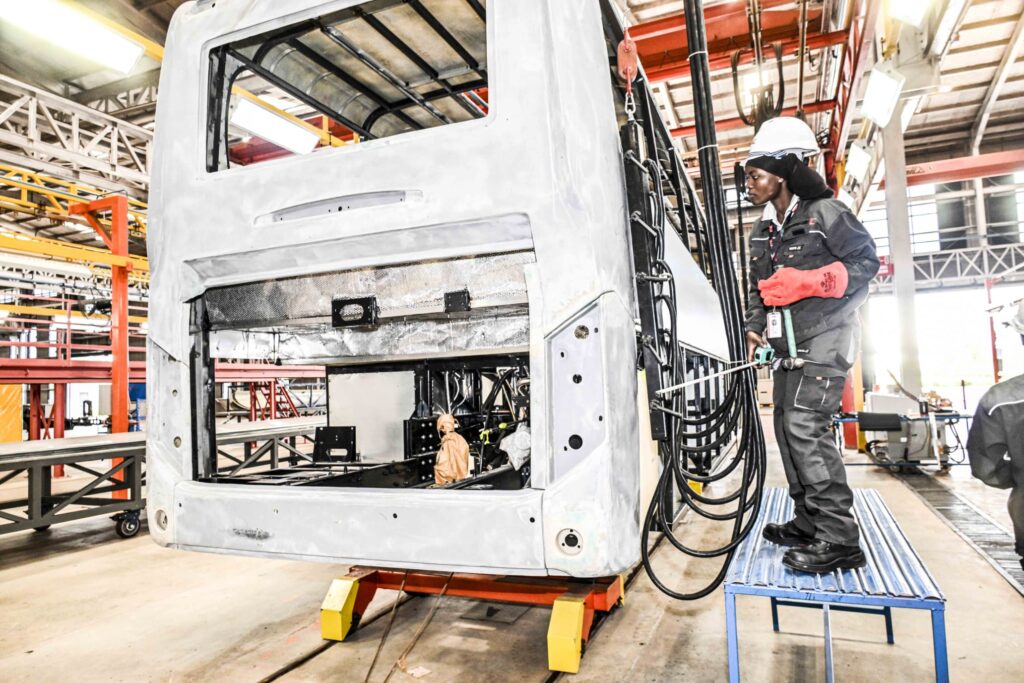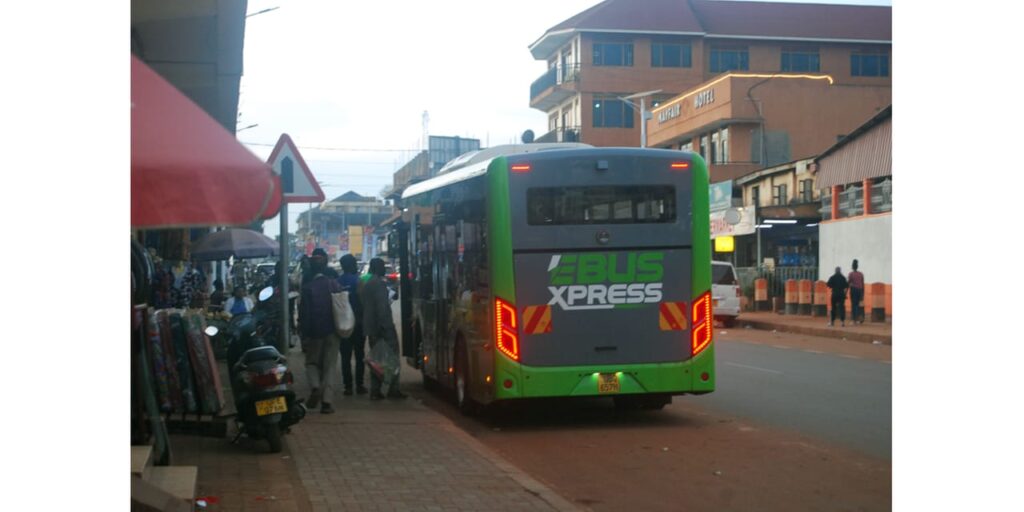
JINJA.Effective next year ,Kiira Motors Corporation, a Ugandan automotive manufacturer will start rolling out E-Xpress buses in major cities to ease passenger transportation and improve urban mobility.
Under the same programme , Kiira Motors believes the buses will also reduce carbon emissions while showcasing Uganda’s growing capacity for homegrown automotive innovation.
According to Eng Richard Madanda, the Director of Product Development at Kiira Motors, the deployment of E-Xpress buses marks a significant milestone in the country’s journey toward cleaner public transport solutions.
“The E-Xpress buses are engineered to deliver reliable, efficient, and environmentally friendly mobility for everyday commuters,” he stated. “Our goal is to redefine urban transportation by offering a modern system that supports economic growth while safeguarding the environment.”
The E-Xpress buses, manufactured at Kiira Motors’ plant in Jinja District, are equipped with advanced detection and monitoring systems that can identify mechanical problems from any location.
They also feature warning devices that alert drivers when they exceed speed limits and provide real-time instructions on what to do in case of potential issues. Additionally, the buses have spacious luggage compartments, toilets, cameras, and internet connectivity, making long-distance travel more comfortable and convenient.

Passengers can travel on these buses electronically, using an E-Cash Card, which can be recharged via mobile money. The buses operate on strict schedules, stopping only when passengers signal, ensuring a hassle-free and efficient travel experience.
Seven pilot E-Xpress buses have been operating on the Jinja-Iganga highway, Jinja-Mutai, and Jinja-Mbiko routes since November 2024, generating Shs 425m (approximately USD 110,000) in revenue. The pilot project has demonstrated high passenger demand, prompting Kiira Motors to scale up production.
Eng Madanda said that several higher learning institutions, government agencies, and individual clients have already submitted specifications for the types of vehicles they want produced, including both electric and diesel models. “The growth of Uganda’s electric mobility sector is opening up new business opportunities for the public,” he noted. “Communities and investors can tap into several ventures along the value chain, including acquiring land for the establishment of bus terminals, developing gazetted bus stops, and setting up charging stations for electric buses.”
Kiira Motors plans to ramp up production, targeting 2,500 vehicles mid-term, 5,000 long-term, and 10,000 annually by 2030. The company is committed to reducing Uganda’s dependence on imported vehicles, which is estimated to cost the country around USD 800 million (approximately Shs 2.9 trillion) annually.